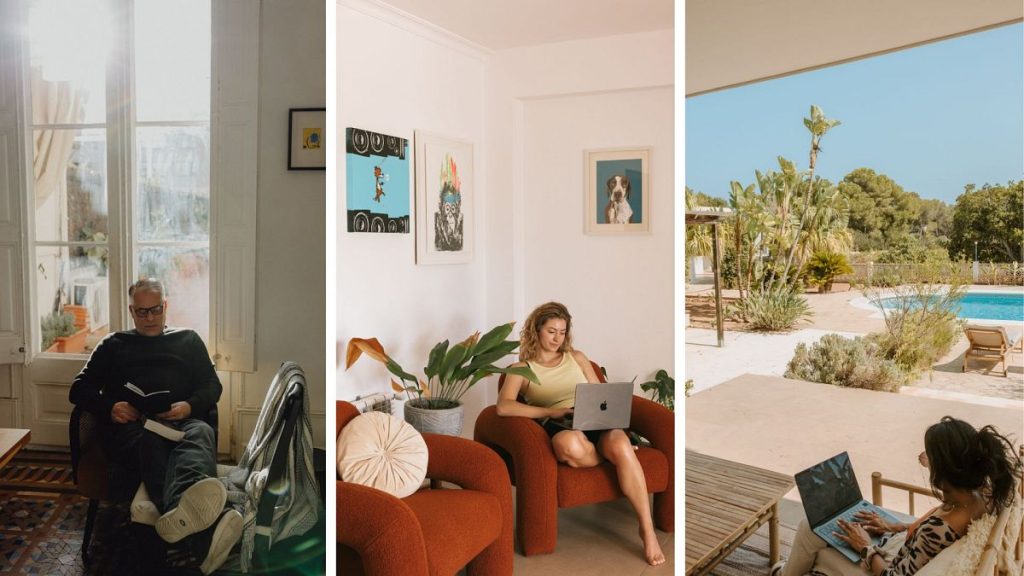The allure of home-swapping, popularized by the film “The Holiday,” presents a romantic vision of travel intertwined with serendipitous connections. The concept sparks the imagination: exchanging one’s own dwelling for a completely different living experience in a new locale, perhaps even forging friendships or finding unexpected romance. This idealized notion raises the question of whether such exchanges are purely fictional or hold genuine potential for enriching travel experiences.
Justine Palefsky, co-founder of Kindred, a modern home-swapping platform, acknowledges the long-standing existence of home exchange websites. However, she points to the lack of curation and quality assurance in earlier models as a barrier to widespread adoption. Kindred aims to address this by functioning on a “give a night, get a night” principle, allowing members to accumulate credits for future stays, effectively providing near-free accommodation. With a rapidly expanding network of over 50,000 homes across 150 cities in Europe and North America, Kindred emphasizes the human connection and cultural immersion often lacking in traditional travel accommodations. Palefsky contrasts Kindred’s member-driven approach with the impersonal and transactional nature of many large short-term rental platforms, which often prioritize property promotion over fostering meaningful interactions. Kindred’s restriction of listings to primary residences further cultivates a sense of shared community and trust among members.
The inherent vulnerability of entrusting one’s home to strangers raises valid concerns about the potential for misuse or damage. The prospect of reciprocal curiosity – exploring the personal belongings and spaces of another – adds another layer of complexity to the home-swapping dynamic. Kindred mitigates these concerns through a robust framework of guidelines and a strict code of conduct, including government ID verification and immediate expulsion for policy violations. The platform also offers a full-service experience encompassing pre-and post-trip cleaning, 24/7 concierge support, and comprehensive host and trip protection, alleviating anxieties about property maintenance and unexpected issues.
The financial aspect of Kindred presents a significant advantage compared to traditional accommodations. Unlike platforms like Airbnb, Kindred only requires a one-time service fee for hosts and a cleaning fee for guests, typically around $140 (€134) for a week-long stay in major European cities. This affordability aligns with Palefsky’s vision of home-swapping as a more accessible and empowering travel option, contrasting with the potential disruption caused by traditional short-term rentals in high-demand areas.
Kindred’s growing popularity, especially within Europe, demonstrates a rising interest in this alternative mode of travel. While popular destinations remain prevalent, the platform also showcases a diverse range of lesser-known cities, offering opportunities for unique and off-the-beaten-path experiences. Listings range from a lakeside cottage in Portugal to a traditional wooden home in Sweden and a contemporary homestead in Andorra. The platform’s curation reveals the personal touch of each homeowner, exemplified by a rug designer’s uniquely decorated former convent in Sicily. This emphasis on individuality fosters a sense of connection and potential camaraderie between hosts and guests.
The potential for forging genuine connections through home-swapping is a key aspect of Kindred’s appeal. The platform facilitates access to local insights and experiences that go beyond typical tourist recommendations, reminiscent of the early days of Airbnb. Anecdotes of members composing songs for their hosts or hosts arranging surprise experiences highlight the human element at the heart of these exchanges. This emphasis on local immersion resonates particularly with millennial remote workers, who constitute a significant portion of Kindred’s user base. The platform caters to diverse travel styles, from week-long stays to extended “power user” trips lasting 40 to 80 nights a year, accommodating families, retirees, and those seeking unique travel experiences.
Kindred’s commitment to fostering community extends beyond the digital realm. The platform organizes in-person events and dinner parties, allowing members to connect face-to-face and build relationships. The app also facilitates direct swaps, further enhancing the potential for personal connections and shared experiences. This combination of online and offline interaction positions Kindred not just as a home-swapping platform, but as a facilitator of meaningful travel experiences rooted in human connection. The hope of forging friendships, or perhaps even finding a holiday romance reminiscent of “The Holiday,” remains a tantalizing possibility for those embracing the adventure of home-swapping.














